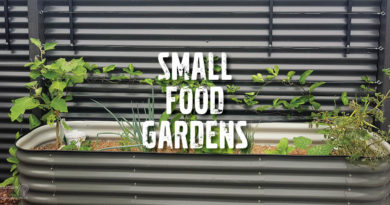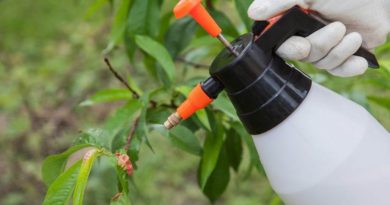Après La Pluie: An Artisanal Organic Cannabis Farm
The smell of a forest after it rains evokes a sense of peace and tranquility. Warm, almost sweet, and incredibly earthy, the aroma has been studied by scientists and perfumers for years (1). The fragrance results from rain hitting the dry ground and the molecule geosmin, which is produced by bacteria. The scent’s scientific name is petrichor, but Quebecer Aurélien Pochard doesn’t think that word rolls off the tongue quite right. So, he decided to name his artisanal cannabis farm Après La Pluie, which translates to After The Rain in English.
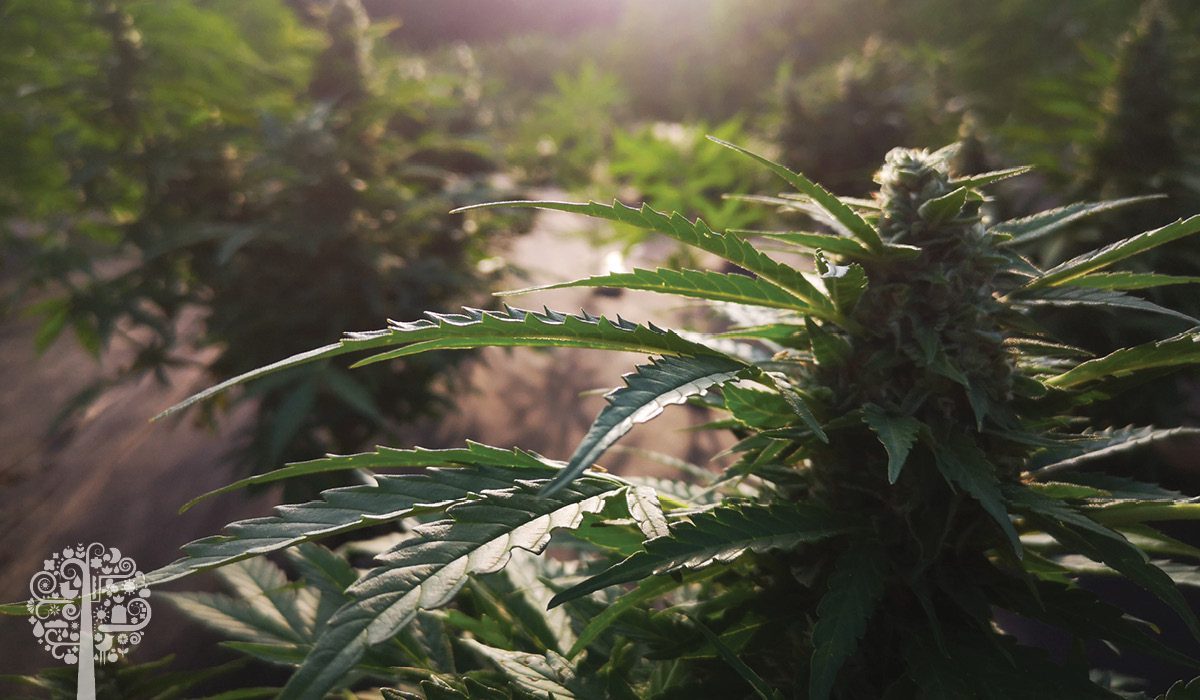
But the name is also a symbolic one. There is a famous saying in France that goes, “Après la pluie vient le beau temps,” meaning, after the rain, comes the nice weather. Pochard says the proverb speaks to his farm and everything the cannabis plant has been subjected to over the years.
“I didn’t think of it when I first chose the name of the farm, but people seem to connect it to 100 years of prohibition and that it’s now getting better,” he explains.
A Changing Outlook
The outlook is certainly looking good for the cannabis plant, which is becoming more widely accepted and appreciated for its medicinal properties. When Pochard first decided to start farming, the plant was not yet legal in Canada, so he grew organic vegetables instead. But in October 2018, the government legalized the recreational use of cannabis, and while Pochard’s girlfriend has continued with the veggie plot, he decided to change course.
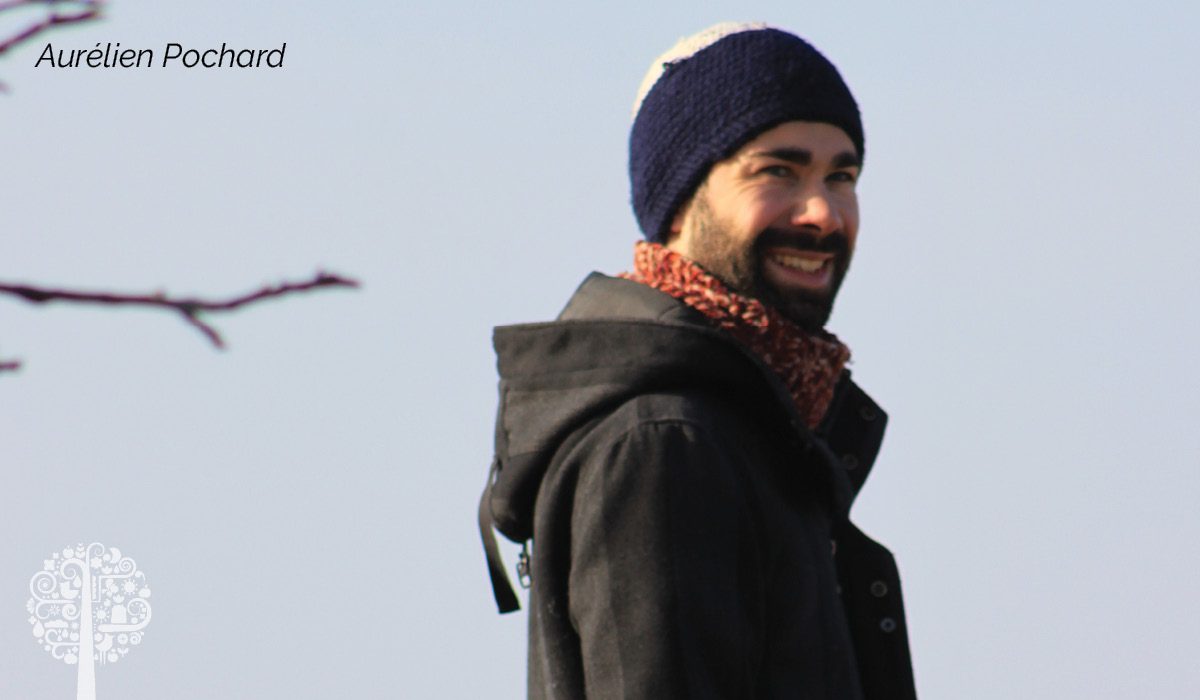
Pochard’s organic cannabis farm sits in the picturesque Eastern Townships, a lovely piece of mountainous countryside with plenty of lakes in Quebec, Canada. And although the operation is just starting, Pochard’s love affair with cannabis is nothing new. He grew up in a city in the South of France; although many family members are connected to the vineyard industry, he didn’t have a garden or farm at his home.
“The first opportunity I had to grow a plant was to grow cannabis in my basement; as soon as I left my parents’ home,” he laughs. “I loved it. It’s an odd feeling; discovering [how to care for] a plant is something amazing, akin to having an animal to take care of for the first time.”
After moving to the Canadian city of Montreal a few years ago, he and his girlfriend decided they wanted to jump into the world of horticulture. Pochard credits the cannabis plant he had growing in his basement in France for piquing his interest in farming.
“It started with cannabis, which led to agriculture,” he says. “You know how they say cannabis is a gateway drug? It is, but to agriculture.”
Artisanal, All-Natural Cannabis
His dream is to grow differently from what is typically seen in the world of cannabis. He wants his product to remain local, something he realized there was a real demand for while working part-time last year at the SQDC, Quebec’s licensed cannabis distributor. He and his partner, Alla Malyezyk, the owner of a cannabis PR company called Fresh Press, hope to lead a six to eight-person team one day. Small-scale farming at its best.
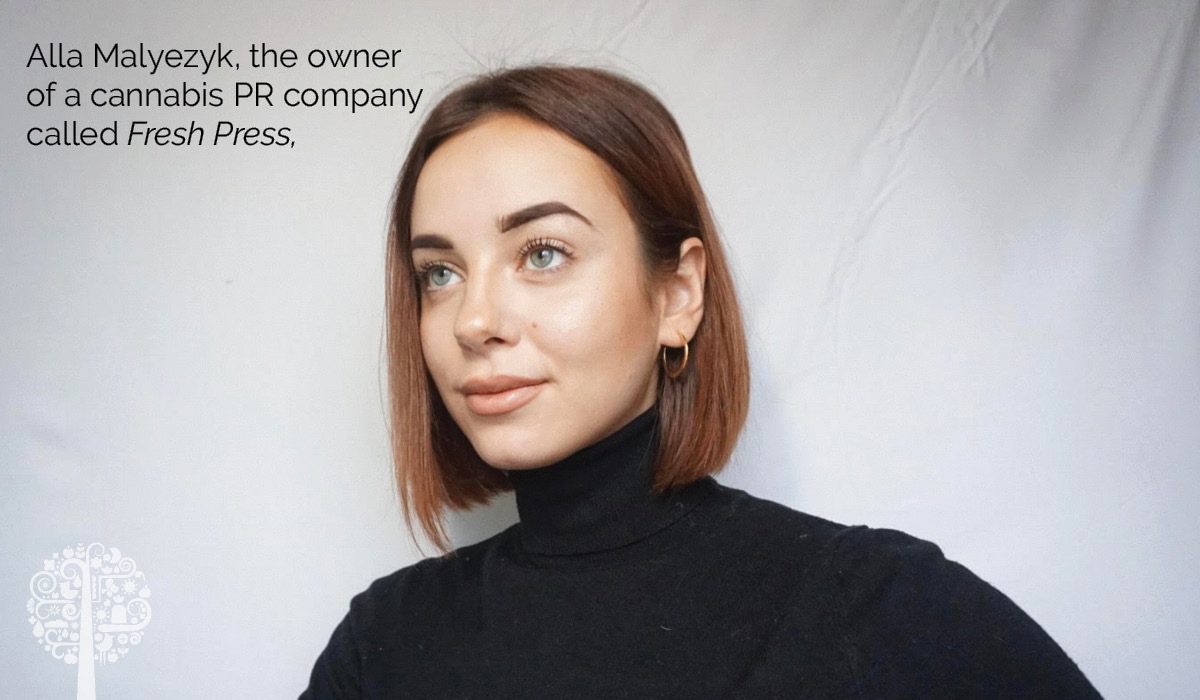
While remaining a small, artisanal grower is a large part of his vision, Pochard also wants to set his farm apart by growing his plants strictly outdoors.
“We see a lot of high-tech greenhouses and even warehouses for indoor growing, and I’m fine with that,” he says. “But it’s more of a consequence of prohibition than anything. So, as soon as you legalize the plant, it just means that you’re opening the doors to bringing it outside again.”
Growing organically in living soil, Pochard depends on the natural sunlight for his fields of cannabis. Much like food crops, he believes that exposing plants to the elements in an eco-friendly way results in a better-tasting and healthier product.
“As soon as you bring them into a natural environment, they’re going to pull on hidden resources and play on whatever life is in the soil,” he says. “Plants have grown successfully outdoors for millions of years before we had to bring them indoors. They have the skills to make it outdoors, and cannabis is a tough plant as well.”
Property and Plant Selection
Apès La Pluie is in Bedford, just across the street from the vegetable farm Pochard started with his girlfriend. The area sits between a river and a forest of maple trees and is the ideal microclimate for growing cannabis in the harsh Quebec climate. Surrounded by mountains and Lake Champlain, summers in the region are typically hot; the first frost hits quite late in the fall, and the winters are relatively mild. The property is about an hour outside of Montreal, and yet storms that hit the big city often miss Bedford completely. Several vineyards also benefit from the unique weather patterns in the area known as La Route des Vins (Wine Route).
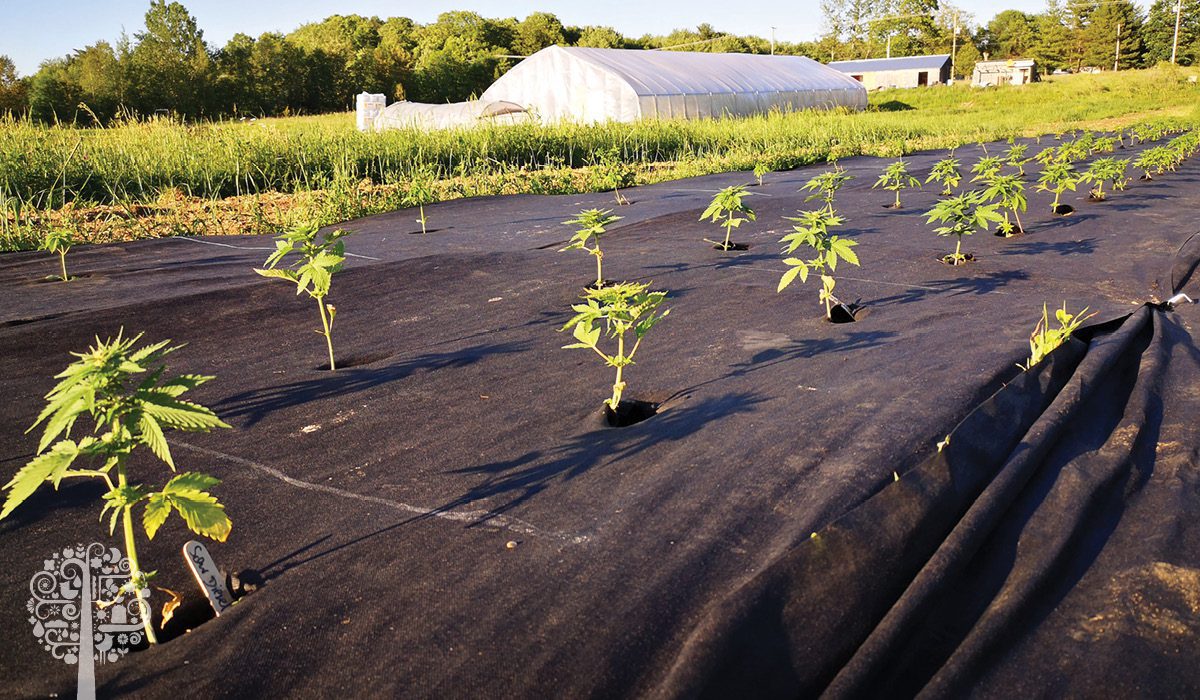
Although cannabis plants are naturally robust, Pochard also selects more conducive strains to Quebec’s short and sometimes temperamental growing season. While he’s still in the process of obtaining his recreational growing license from Health Canada, he has been growing medical cannabis on the same property for some time, which has allowed him to do quite a bit of research and development. The master grower knows he needs varieties that flower early and are resistant to the mold and diseases caused by humidity. He also seeks to stagger his harvest throughout the season, but nothing past October when the weather turns cold. Pochard has trialed some strains that have turned out to be disasters, but he has also found some real winners in the process, often plants with tropical backgrounds in their genetics.
“There’s a strain I love that’s called Nepal Jam,” he explains. “It’s a cross between a Nepalese strain, so it has all the resistance to frost, to cold, to changes in temperature that a mountain strain will have, but it’s crossed with a Jamaican strain. And that Jamaican strain brings resistance to the high humidity jungle environment.”
Organic Growing
Beyond testing various strains, Pochard is also perfecting his organic growing practices. He doesn’t use any chemical inputs on the five-acre property he is leasing. Being in a wet climate, he says he struggles with botrytis, a common disease that also affects strawberries and grapes.
“Instead of using chemicals to kill the pathogen, the idea is to cover the plant with other microorganisms,” Pochard explains. “They interact with the plant and essentially become their bodyguards.”
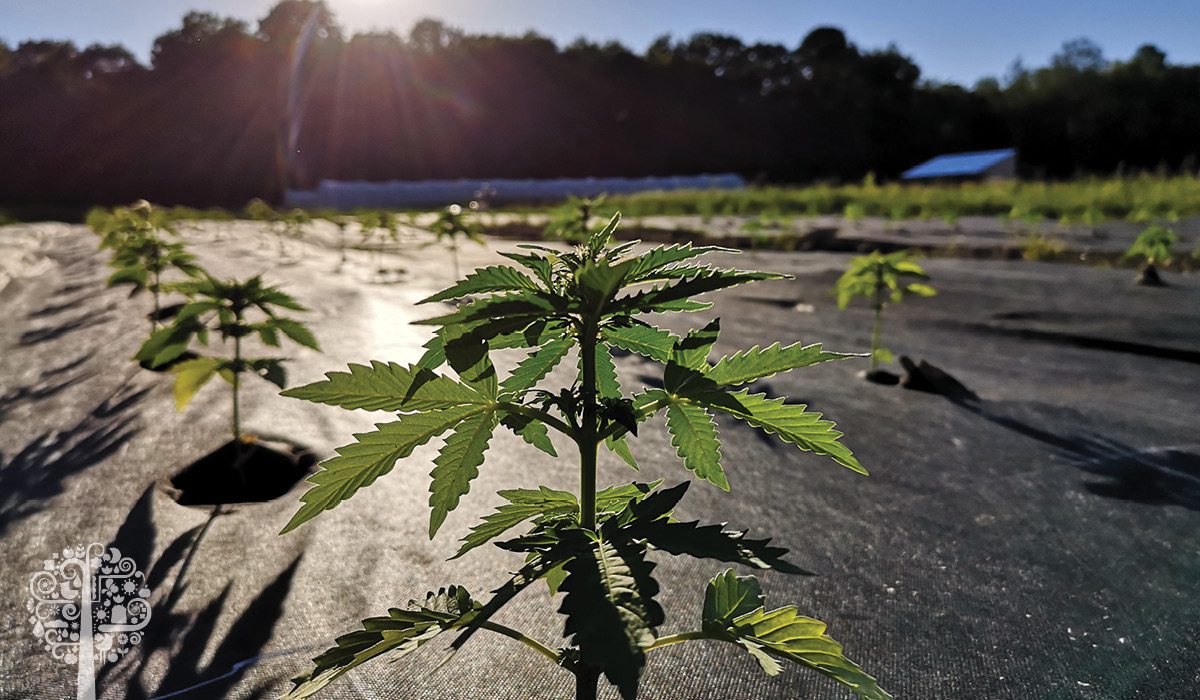
As on all organic farms, Après La Pluie focuses on feeding the soil, not the plants. Blue powders are replaced with compost and algae. Pochard says he enjoys using products from the sea, including crab and kelp meal, excellent for keeping the plant healthy until harvest. Cover crops are also essential to helping soil life thrive, and Pochard always has living plants in the ground; when cannabis isn’t growing, crops like oats and peas are.
“From irrigation schedules and the type of fertilization to the best way to trellis a plant in Quebec, I’ve learned a lot about the different methods that fit my site, my climate, and the way I like to grow,” he says.
When The Cold Sets In
When the outdoor growing season comes to a close, Apès La Pluie will turn its focus to the production of hashish, something Pochard says helps him connect with his family’s roots in France’s wine industry. Like how grapes must age before they can be turned into wine, harvesting cannabis plants and knowing it’s not the final product is an exciting prospect for Pochard.
The Very Near Future
Apès La Pluie is in the midst of the application process, and Pochard says Health Canada’s guidelines for cannabis farms are reasonably straightforward. Before obtaining the license, he and his partner must build the drying, processing, and packaging buildings on the property along with a security fence, cameras, and sensors. He’s scheduled to start building next summer and hopes to have products on the shelves within two years. His excellent reputation as a medicinal grower has helped him immensely. The SQDC has already signed an agreement with Pochard saying that it will buy his product for sale at local outlets closest to his farm once he’s fully licensed.
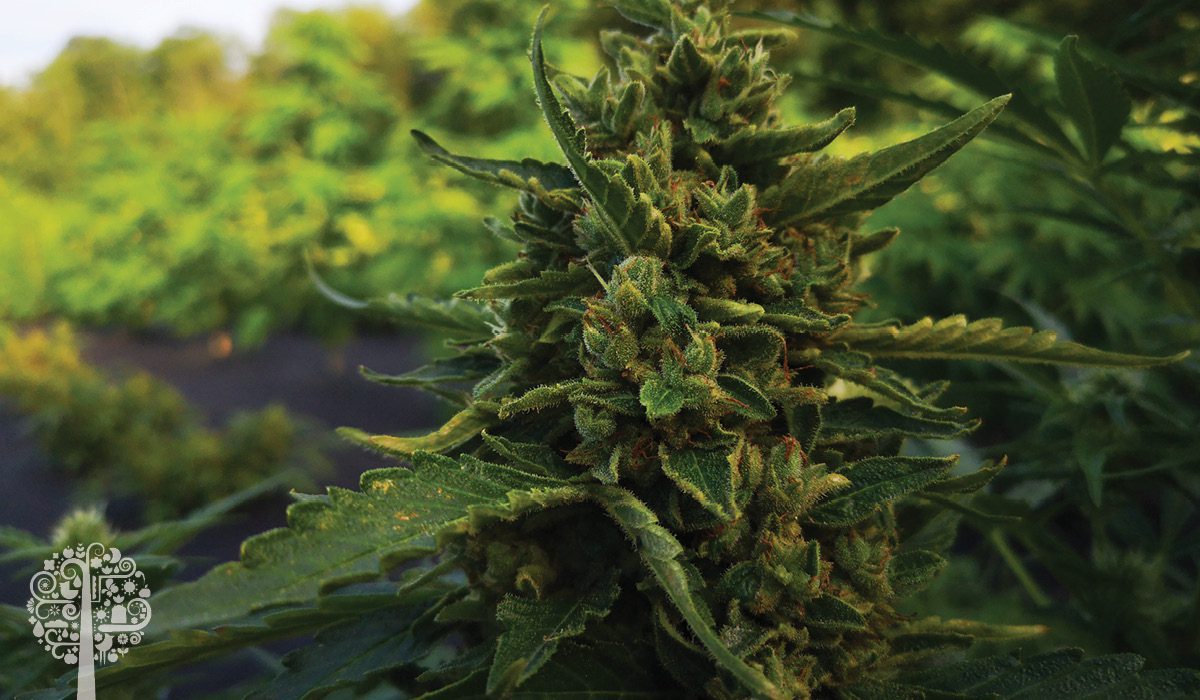
There’s a delicate balance between doing something small-scale and artisanal and still having a profitable business model. But Pochard is confident he can make it work. By keeping it local, he hopes people will get to know their cannabis farmers. And by working with nature and growing organically, Pochard believes he can enhance each plant’s potential, aroma, and flavor.
Both the environment and the consumer win, and that sounds like a winning combination. For Apès La Pluie, nicer weather is certainly on its way.


